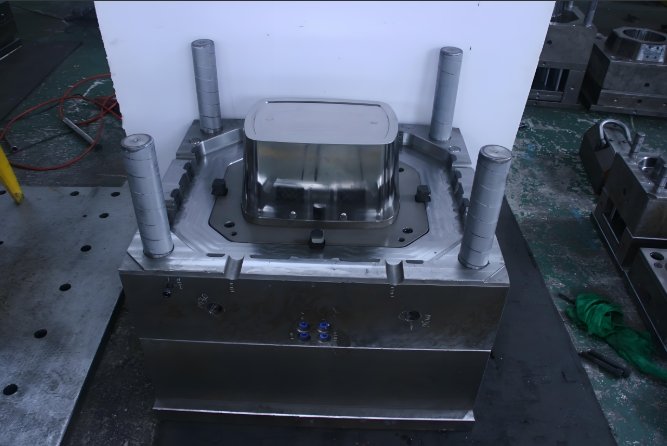Injection molding has transformed electronics manufacturing. It enables the mass production of intricate parts. Injection mould companies play a key role in this process. They create custom injection molds that meet the demands of modern technology.
From smartphones to circuit boards, every electronic device relies on precision. Let’s explore how injection mould companies contribute to the electronics industry.
1. High Precision for Small Components
Electronics require precise parts. Tiny components must fit together perfectly. Injection molding makes this possible.
With advanced machinery, molds produce consistent parts. Skilled mold makers design molds for extreme accuracy. This ensures every component meets tight tolerances.
Precision is essential in products like:
- Microchips
- Connectors
- Sensor housings
Without injection molds, creating these parts would be difficult.
2. Durability and Performance
Electronics need durable parts. Injection molds create parts from high-performance plastics. These materials offer:
- Heat resistance
- Electrical insulation
- Impact strength
Thermoplastics like polycarbonate and ABS are common. They ensure products can withstand harsh conditions. Injection mould companies select materials that enhance performance.
3. Customization and Innovation
Every electronic product is unique. Injection mould companies enable customization. They create molds tailored to specific designs.
This is important for:
- Smartphone cases
- Laptop keyboards
- LED light enclosures
Customization drives innovation. With injection molding, companies can experiment with new designs. This keeps electronics cutting-edge.
4. Cost-Effective Production
Mass production is crucial in electronics. Injection molding offers cost-effective solutions. Once a mold is made, thousands of parts can be produced quickly.
This reduces manufacturing costs. It also ensures consistent quality. For electronics companies, this is a major advantage.
5. Lightweight Materials
Modern electronics must be lightweight. Injection mould companies use advanced plastics to achieve this.
Lightweight materials improve portability. They also enhance energy efficiency in devices. For example:
- Lighter drones use less battery power.
- Thin laptops are easier to carry.
Injection molds ensure these materials are molded with precision.
6. Superior Aesthetics
A product’s appearance matters. Injection molding creates sleek and attractive designs.
Plastics can be molded into various textures and finishes. This includes matte, glossy, or patterned surfaces. Electronics like phones and gaming consoles rely on this feature.
Skilled mold makers design molds for both functionality and aesthetics.
Applications of Injection Molding in Electronics
1. Housing and Casings
Casings protect internal components. Injection molds create sturdy yet lightweight enclosures.
Common examples include:
- Smartphone shells
- Remote control casings
- Router covers
2. Connectors and Plugs
Connectors ensure proper wiring in electronics. Injection molding produces reliable connectors.
Examples include:
- USB ports
- HDMI connectors
- Power plugs
3. Internal Components
Many internal parts are plastic. These include brackets, insulators, and clips. Injection mould companies ensure these parts meet strict standards.
Challenges in Electronics Injection Molding
1. Miniaturization
Electronics are shrinking. Molds must handle tiny parts. Skilled mold makers design micro molds for this purpose.
2. Material Selection
Electronics require specific materials. These must resist heat and static. Injection mould companies carefully choose the right plastics.
3. Complex Designs
Modern devices have intricate designs. Molds must handle complex geometries. This requires advanced techniques.
The Role of Mold Makers
Mold makers are essential in electronics manufacturing. They design and create molds for injection molding. Their expertise ensures:
- Precision
- Durability
- Efficiency
A skilled mold maker considers all factors. This includes material behavior, part size, and production speed. Without them, injection molds would not meet industry demands.
Future Trends in Electronics Injection Molding
The future of electronics is exciting. Injection mould companies are adapting to new trends. These include:
- Smart Materials: Polymers with advanced properties like conductivity.
- Sustainability: Using recycled plastics to reduce waste.
- 3D Printing: Combining injection molding with additive manufacturing.
These innovations will shape the next generation of electronics.
Why Injection Mould Companies Are Indispensable
Injection mould companies are the backbone of electronics production. They enable high precision, customization, and cost savings. Skilled mold makers ensure molds meet the industry’s high standards.
Without injection molding, modern electronics would not exist. From smartphones to medical devices, every gadget depends on it.
Investing in quality injection molds ensures better products. It also drives innovation in a competitive market.
Injection mould companies are essential for electronics. They provide the tools and expertise needed to create reliable parts.
Through injection molding, they deliver precision, durability, and efficiency. Skilled mold makers drive innovation in mold design.
As electronics evolve, so will the role of injection molds. This partnership ensures the future of technology stays bright.

